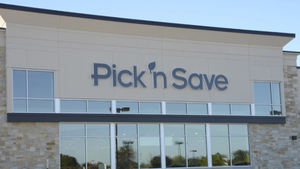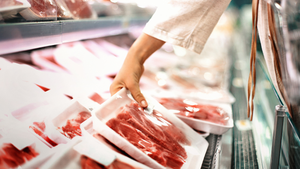Consumer sustainability demands driving manufacturer changes, report finds
77% of providers have updated strategies in light of concerns

Food and beverage manufactures are changing or adding products based on consumer sustainability concerns, with 77% reporting that they’ve made modifications to their offerings, a recent survey has found.
The study, which was conducted by the Los Angeles-based accounting firm Green Hasson Janks, found that consumer interest in companies that employ strategies such as sustainably sourcing ingredients and reducing waste have greatly shaped the food and beverage industry.
“Though initially it may not be cost-effective, there may be some components that in the long run may lead to higher revenues,” said Donald Snyder, partner and leader of the food and beverage practice at Green Hasson Janks.
Snyder pointed to the study’s findings that report over 60% of consumers would rather purchase products that have sustainable initiatives.
“Innovative market leaders in food and beverage are not just talking sustainability but backing it up with actions by redesigning packaging, pursuing sustainable manufacturing practices and innovating with new product offerings,” he said in a release that announced the findings. “In addition to sustainability, companies are looking to incorporate social responsibility as a practice and use it within their marketing strategy.”
Snyder pointed to Wal-Mart Stores as a grocery retailer that has altered its seafood buying habits to meet these consumer sustainability demands. More than 90% of Walmart US, Sam’s Club and Asda’s fresh, farmed and wild seafood has Marine Stewardship Certification or Best Aquaculture Practices or is engaged in a Fishery Improvement Project, according to the company’s sustainability promise.
Snyder also said that the Hershey Co. and PepsiCo Inc. have made changes to their packaging with sustainability in mind.
Alexander Gillett, CEO of the sustainability ratings company HowGood, would likely agree with Snyder’s findings. The company maintains a database of 200,000 food products and ratings that evaluate environmental and social practices. Store products that earn the top rating are showing average sales lifts of 230%.
Contact: [email protected]
Twitter: @DanAMX
About the Author
You May Also Like






